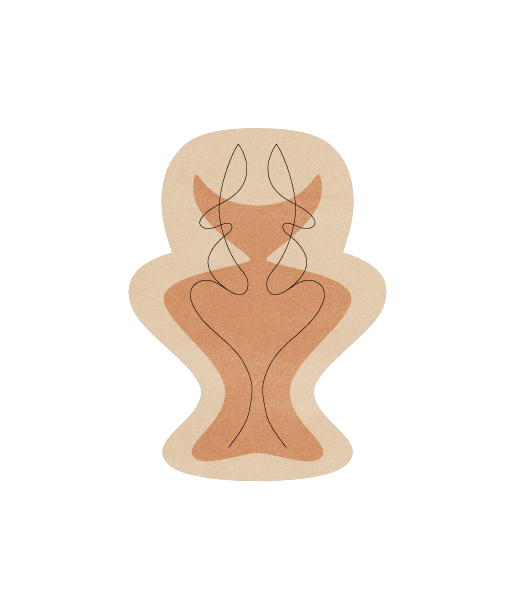Melbourne Urologist specialising in robotic urologic cancer surgery
Dr Deanne specialises in robotic prostate, kidney and bladder cancer surgery, minimally invasive reconstruction and advanced laparoscopic techniques. Her clinical practice is centred on complex oncological urology with a focus on delivering high-precision surgical care across Melbourne.
Knowledge.
Empathy.
Leadership.
Dr Deanne is a patient-focused urologist specialising in robotic surgery for cancer and non-cancer conditions. She prioritises personalised care, taking time to understand each patient's needs and providing informative and tailored medical advice.
What can we help with?
Robotic Surgery
Dr Deanne performs robotic surgery for selected urologic cancers and complex urological conditions. In cancer surgery, the value of robotics is not “better technology” on its own—it’s that, in the right patient and the right operation, it can help a surgeon operate with improved visualisation and controlled instrument movement through small incisions.
In many settings, minimally invasive approaches are associated with smaller wounds, and often less blood loss and a shorter hospital stay compared with open surgery—though this varies by the operation and individual circumstances.
What does not change is the most important part: judgement. Patient selection, accurate staging, and a clear plan for recovery matter at least as much as the platform. Benefits to patients include:
Smaller incisions and scarring
Often less blood loss and lower transfusion rates
Hospital stay may be shorter in suitable cases
Recovery can be quicker for some procedures and patients
Associations and Affiliations
-

Royal Australian College of Surgeons
-

Urological Society of Australia and New Zealand
-

European Association of Urology
-

Royal College of Surgeons of Edinburgh
-

Epworth Hospital
-

St Vincent's Hospital Melbourne
-

Healthscope
-

Ramsay Health
-

Australian Prostate Centre
FAQ’s
Urology is a medical specialty that focuses on the urinary tract system of both men and women, as well as the male reproductive organs. It deals with various conditions affecting the kidneys, bladder, urethra, and male reproductive system, such as the prostate and testes. Here are some frequently asked questions (FAQs) about urology
-
Dr Deanne diagnoses and treats problems of the kidneys, bladder, urethra and the male reproductive system. Common reasons people see her include blood in the urine, kidney stones, urinary symptoms, prostate enlargement and urological cancers. Appointments focus on what matters to you first—symptoms, goals, and any worries—before talking through tests and treatment options.
-
Urological procedures encompass medical interventions designed to diagnose or treat conditions of the urinary tract and male reproductive system. These procedures can range from simple tests to complex surgeries. Examples include cystoscopy, which inspects the bladder and urethra with a camera; lithotripsy, a method for breaking down kidney stones; and prostate biopsies for assessing prostate health and cancer. Each procedure is tailored to meet the patient's specific health needs, ensuring optimal results.
-
Everything from urinary tract infections and incontinence to kidney and bladder stones, elevated PSA, benign prostatic hyperplasia (BPH), and cancers of the prostate, kidney and bladder. She also looks after concerns such as erectile dysfunction and testicular problems. If you’re unsure whether your issue is “urology”, call the rooms and we’ll point you the right way.
-
Open surgery uses a larger incision and direct access. Robotic/keyhole surgery uses a camera and fine instruments through small incisions. The robotic console provides high-definition 3D vision and very controlled instrument movement, which can be helpful for complex dissection and suturing.
In many urologic operations, minimally invasive approaches are often associated with less blood loss and a shorter hospital stay compared with open surgery. Smaller incisions can also reduce early wound discomfort for some patients. However, the “right” approach depends on the diagnosis, tumour features (where relevant), anatomy, prior surgery or radiation, and overall health—and there are situations where open surgery remains the safest option.
-
Yes, for a Medicare rebate you’ll need a valid referral.
From a GP: generally valid for 12 months.
From another specialist: usually 3 months.
You can book without a referral, but Medicare won’t rebate the fee. If you’re stuck, our team can help you organise one before your appointment.
-
Public (Medicare-funded): care in a public hospital with no out-of-pocket hospital fees, but longer wait times for non-urgent surgery.
Private (insured or self-funded): you choose your surgeon and hospital, and surgery is often sooner. There may be out-of-pocket costs depending on your cover and the procedure.
We’re happy to talk through both pathways so you can decide what suits your health, timing and budget.
In contrast, private care is funded through private health insurance, allowing individuals to choose their doctors, receive treatment in private hospitals, and often enjoy shorter wait times for procedures. Private care can also offer more amenities and personalised services. Ultimately, the choice between public and private care depends on individual preferences, health needs, and financial considerations.
-
East Melbourne (Epworth Freemasons), St Vincent’s Private (Fitzroy), Epworth Richmond, John Fawkner, Peninsula Private and The Bays Mornington. If you have imaging or pathology results already, please bring them—this saves repeat tests and speeds things up.
-
If there’s blood in the urine, a rapidly rising PSA, a suspicious scan, or severe pain from a stone, flag it when you contact us. We will do our best to see you within 24–48 hours (business days).










